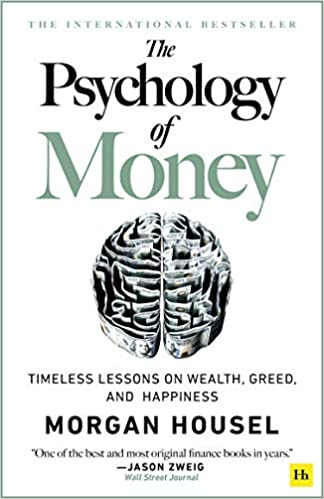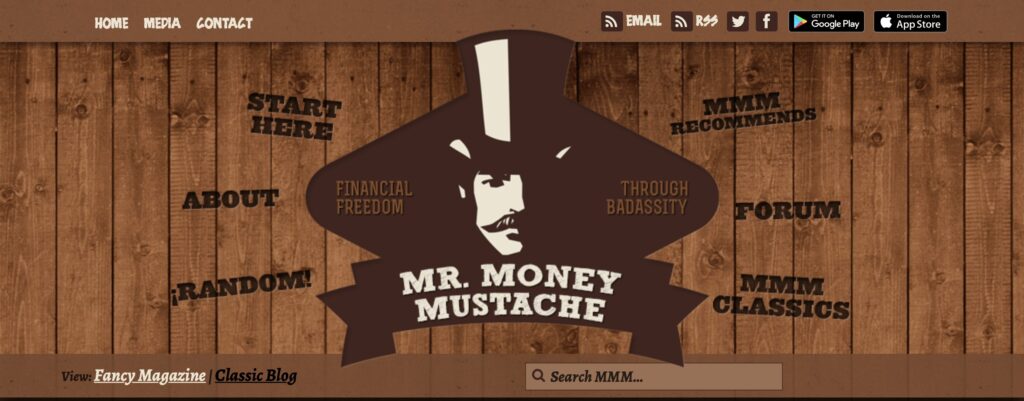Does even thinking about money make you feel shame or fear?
As it comes to the end of the financial year, are your figures ready for your tax return? Or do you have a drawer stuffed full of receipts that you’re aiming to deal with soon? (And yet somehow never touch until just before your tax return is due in…)
If so, you’re not alone. We all have disempowering stories about money.
There is too much mystery around it, too much emotion that doesn’t belong there. Money is tied up with our childhoods, with power, shame and our sense of self-worth.
For creatives especially, there are stories about starving artists we often believe, along with a sense that if we’re to make the work we really want to make, we can’t also expect security, a steady income, and all the things that come with a ‘proper’ job.
You can earn good money from your creative work, and you can change your relationship to money. Handled right, it can work for you, become a tool to give you creative freedom.
If you want to learn more, here are some resources I’ve found useful.
Books
Saving, investing, handling money: the basics.
I Will Teach You To Be Rich – Ramit Sethi
Like many finance books, this an American book republished in the UK with a few cursory changes to make it (sort of) work for a British readership. However, it’s the one that really got through to my son in his late teens/early twenties, and got him saving as well as spending and setting up systems to handle his money. It’s also not as miserly and self-denying as some of the others, acknowledging that it’s all about balance. That money is for enjoying, not just squirrelling away.
Your Money or Your Life – Vicki Robin
Good thoughts on why owning loads of stuff and working yourself to death to get even more isn’t the only way of living a full, rounded life. This created a real mind-shift for me, helping me realise that it wasn’t always about earning or acquiring more. It’s also about making the most of what we already have. When we learn to live on less than we’ earn, we can save and gain real financial freedom – with all the choices that brings, about how we spend our time.


Running your own business
The Middle Finger Project – Ash Ambirge
Ash loves money. More precisely, she loves the freedom, independence and lifestyle you can enjoy, as a woman, by setting up your own online business.
This book talks about growing up in a trailer park and all the (often painful) lessons life taught her about money. And it explains how she changed that, and offers a blueprint for you to do the same.
It’s informative, and moving at times. But it’s also very funny, a call to arms, and a great place to start if you’re thinking of setting up an online business.



Profit First – Mike Michalowicz
OK. This is dry, boring, over-complicated in parts. But the system it teaches changed everything for me. It shows you how to keep your business expenses within your budget, and pay yourself from the start. It took me from constantly thinking a holiday/treats were something we could afford next year/decade/never to having a pot of money that was mine to spend, guilt-free – while still growing my business.
Worth ploughing through and taking time to set up, if you don’t know what to spend on work equipment and professional development – or how to pay yourself.
The Million Dollar Weekend – Noah Kagan
Behind the clickbait-y title there’s some solid, actionable advice about making products or selling what you know. If you’re under-earning and want to change that, this is a good place to start.
I’m planning a 90-day experiment to execute his ideas, and see how easy it is in the real world.
F**k Work Let’s Play – John Williams
Clearly when it comes to business, a sweary attitude sells books! This is an update of one of the first books to promote the idea that you can and should make money by doing what you enjoy, setting up quickly, and treating business as a series of experiments. (Tim Ferriss’ deceptively named but very useful The 4-Hour Work Week is another classic).
Williams throws in lots of information, but this kitchen sink approach means there’s bound to be something you’ll find useful if you’re embarking on money-making adventures online.
Changing your money mindset
The Art of Money – Bari Tessler
Tessler is a therapist who deals with money issues. Which almost all of us have, one way or another. The tone can be a tiny bit irritating – she is forever nibbling on dark chocolate, for instance – but if you’re someone who freezes or is stuck in unhealthy behaviour patterns with money, this gently and compassionately talks you through a process of trusting what your body is telling you, examining your blocks, and putting systems in place to change them. Like the book below, you’ll get most out of it if you go through it slowly, doing the exercises as you go along. Stick with it. It’s transformational.



The Energy of Money – Maria Nemeth
Another great book on money mindset, full of really illuminating exercises. This one leans heavily on the Buddhist idea of Monkey Mind, helping you get to grips with your internal chatter and deeply-held beliefs and assumptions around money.
Take it slowly, do the exercises, and you’ll definitely see some major shifts. I worked my way through both of these books over a period of six months. I don’t think it’s coincidental that my income soared during those months. And I’ve always thought I was pretty good with money.
The Psychology of Money – Morgan Housel
This one is aimed at people who already have an investment mindset, and know a little about how the stock market works. It offers great perspectives on risk, reward, saving, and investment choices, and although it’s written from a US perspective, the lessons are easy to apply if you live elsewhere.
It’s also blessedly short, with very little padding. I found lots that was new and interesting here. If you find yourself longing for a bigger house, a more impressive car, or getting into debt to buy more stuff – this will help you gain a new perspective.
Change Your Money Story – Sheryl Garratt
This is a free workbook, created by me to help you uncover the disempowering stories you might be telling yourself about money – and change them for more helpful beliefs. Sign up for it here.
The Five Types of Wealth – Sahil Bloom
Money is important, of course it is. But so is your time, your social connections, your physical and mental health. This book examines what abundance might look like in all of these areas – and gives some useful exercises and frameworks for getting you there.
Die With Zero – Bill Perkins
This has been a game-changer for me, and for many of my older friends. It talks about balancing spending and saving, investing in life-enhancing experiences as well as providing for your old age.
Online resources:
Martin’s Money Saving Expert
A great resource for anyone based in the UK, it explains everything from student debt to tax-free savings in plain, jargon-free English. It gives honest, straightforward advice on everything from insurance and credit cards to travel money and utility bills. I just halved my monthly mobile bill using it, for instance. And got more calls and data.
Mr Money Mustache
Blog by a Canadian who is extremely frugal, while also living a life he loves in Colorado. He gave up working full-time at the age of 28 and now lives on the interest from his investments, freeing him to do all kinds of fun projects and ventures.
The whole Early Retirement Extreme movement has spawned loads of blogs, but his is very funny, and full of great advice on how to save money/get out of debt/live a great life. It’s far more extreme than I’d ever go. But that’s part of the pleasure of reading it.

Compound interest calculator
If you can’t see how you’ll ever be able to save substantial sums, play with this. See how saving even small amounts compounds over time. The average return from investing in the stock market over a long period of time is generally agreed to be around 7% a year, for instance. (Though of course there’s no guarantee of this, and the path isn’t smooth – the market can rise or fall dramatically in any given year. This is the long-term average.)
Pay in £25 a month for ten years, and you might get a solid but unspectacular £4500. Keep on for 45 years, and it will grow to nearly £100,000. Invest £100 a month, and if the stock market continues to deliver, you’d get to £100,000 in 28 years. Even at a most conservative 5%, the returns over time are eye-opening.
The best time to start investing was always 20 years ago. The next best time? Now.
Your future self will thank you.
Apps
I can’t recommend any of the accounting apps, because I still do all of my accounting on exel spreadsheets. Once, this made me feel cutting-edge. Now, it makes me a dinosaur.
Friends tell me that if you’re handling lots of small receipts and invoicing a lot, apps like Xero, Quickbooks and Freshbooks can be a game-changer.
Two things I think are very useful. Many of the new online banks have the facility to create separate pots within your current account to save for specific things (a holiday, a house deposit, a laptop), or to keep money aside for different uses.
I keep 10% of each payment I get for work in a separate pot for investing in my business, and another 10% that is just for me to spend, guilt-free, on whatever I want. Another 30% goes to a high-interest savings account to cover my tax bill – I won’t need it till the end of the year, so it may as well earn something in the meantime.
My son is building his savings with Plum, one of several micro-saving apps that takes small, regular payments from your bank account and rounds up whatever you spend, then allows you to invest this.
People
Most of us need an accountant in our lives. Mine has saved me time, money and a lot of hassle, and become a good friend, over the years. Choose someone who understands self-employed creatives, or your particular field. Mine works mainly with musicians, writers and film people, so he gets our sometimes unconventional world. And argues very successfully with the tax people on our behalf.
If your business is complicated or your accounts are time-consuming, hiring a book-keeper can save your hours when you could be making money and making new work instead of poring miserably over receipts. If not, set aside an hour or so a couple of times a month to keep on top of it.
Try to see this as a gift to your future self, not a chore.
Light a candle, play music you love – even nibble on chocolate, if that’s your thing. The key is to make it as peaceful and enjoyable as possible, and to park the shame, guilt, anger and helplessness many of us feel around money matters. It will save a world of pain next December/January, when the deadline for your tax return is looming.
If you get really tangled up when it comes to money, try the mindset books above. You could also try a coach or therapist who specialises in money issues. There are growing numbers of them.
When it comes to investing, I’m a huge fan of simple, low-cost tracker funds so I’ve never needed to spend a lot of time with my independent financial advisor, but I’m still glad I have one I trust. I call him when there are complicated changes in pension rules, for instance, or I need to know the tax implications of something I’m contemplating. Choose carefully, look out for hidden costs/advisors who only recommend products when they get commission – and find someone who doesn’t feel the need to talk down to you. If they make you feel uncomfortable or can’t use language you understand, they’re not right for you!
Grow your creative business
And finally, I have a ten-day course that will help you build firm foundations for your creative career – or give your existing business, your thinking about finances and your mindset in general a health-check. You can sign up for it here. At the moment, it’s free!
I’ll be updating this post regularly. So do comment and share any books or resources you’ve found useful. Or email and let me know what works for you. And what gets in your way most when it comes to earning more and handling your finances.






The blog offers practical tips for improving money management skills. After reading it, I found the advice actionable and relevant for better financial control. In my opinion, adopting these strategies can lead to more effective money management.